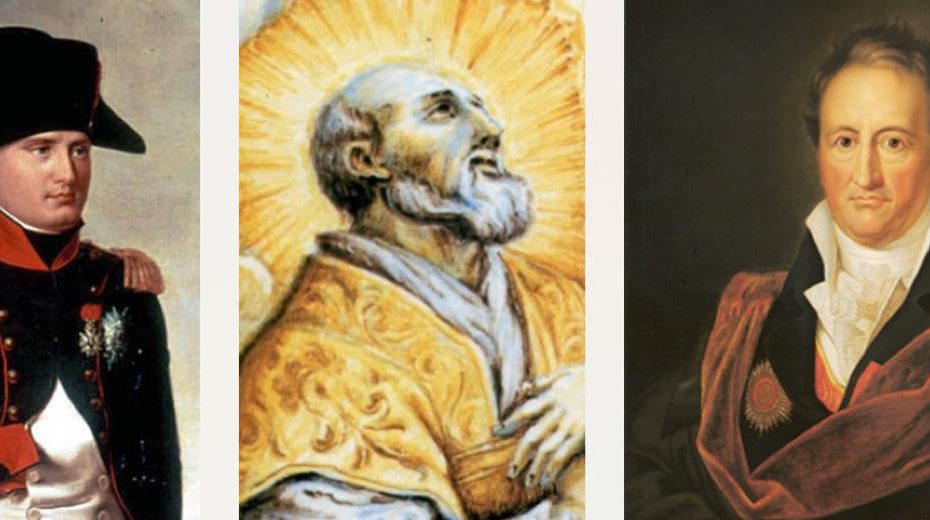Erfurt, 2 October 1808. Napoleon receives Johann Wolfgang Goethe: the audience between the most authoritative statesman in Europe and the supreme artist of the time strengthens the deep dialogue between the French emperor and the German poet. A two-way harmony: “Vous êtes un homme” is the saying dedicated by Napoleon to Goethe who, adorned by the cross of the Napoleonic legion, uttered the aphorism “my emperor” to celebrate the donor of high honor. The elective affinity was taken up by the bestseller “The poet and the emperor” of Gustav Seibt awarded by the Sigmund Freud Prize for scientific literature. Goethe was an enlightened man who appreciated human honesty. The essay “Filippo Neri. The witty Saint” preserves the identikit of the “second apostle of Rome” described by the German author. «Filippo Neri – as Goethe said – was concerned to bring together religiosity, actually holiness, to the things of the world, to introduce the sense of the divine into secular life, to lay the groundwork for a reform». Goethe showed an aversion to Catholicism without, however, renouncing to participate as an artist in religious rites, praising certain of them for music and holy luxury and calling them several hidden and barbarians.
This sensibility evolved on the synthesis between Nature and Art, past and present, spirituality and sensuality, caused by the decisive step: the journey to Italy (1786 – 1788) taken by the German playwright.
In Rome Goethe wrote «How happy I am now to enter completely into Catholicism and to know it in all its depth!» and later claimed «As a poet, I am a polytheist; as a naturalist, I am a pantheist; as a moral being, I am a theist; and I need all these forms to express my feeling».
Goethe, now dying, revealed to his friend Johann Peter Eckermann: If I am asked whether or not it belongs to my nature to express in front of Christ respect and adoration, I answer: absolutely! I bow before Him as the divine revelation of the highest principle of morality. But if I am asked whether it is in my nature to worship the sun, I also answer: certainly! […] In it I adore the light and the procreative force of God. [… ]».
